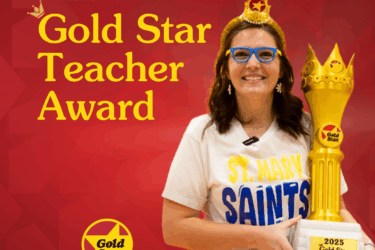As we grow older and years go by, we begin coming to terms with the fact that we really are on our own in this world. Now don’t go getting all bummed out or anything. That’s not to say that we don’t thrive among family and others who care for us and who can be relied upon for support and advice, but certainly how we behave in the midst of our relationships and happenings is completely up to us as individuals.
Things happen.
You react.
All on your own.
How you react is related to the fodder ruminating inside you, whether or not you’re happy, peaceful, stressed, momentarily struggling or perpetually down trodden. Of course, all of what we are in the present is relative to the parenting we received. The baggage — both the good and bad packings we garner in childhood and bring into our adult lives — helps and hinders our parenting styles. It did the same for our parents. You can look at some of what your folks did and vow to do things differently (whether that’s really possible or not) and you can also see the things they did right and hope to do the same (whether that’s really possible or not).
You DO take the past with you, but it’s important to remember that it’s done, it has been lived already and hopefully, if you’re insightful enough, you learn from it. But the past leaves us with remnants of feelings and memories both clear and vague. Sometimes you catch a glimmer of understanding and then, like a good dream you can’t hold onto — it’s gone. We’re not sure about a lot of what happened to us, but we sure do know how to point the finger when we’re upset enough to go looking for blame.
“My mother blah, blah, blah …” or “My father blah, blah, blah …” we scowl, wrestling our way into a psychological examination of the past. But even an educated psychologist needs the help of a psychologist when it comes to his own issues.
Bits and pieces of what we are to our children today will amount to what they remember and share about us when they are grown. Memory is selective.
That’s why Anne Sexton’s quote: “It doesn’t matter who my father was; it matters who I remember he was,” is so poignant and should not be misconstrued — especially within the context of childhood. Sexton means that to children — who take only memories of childhood into adulthood — what matters is if their father was there, threw a ball after supper, read books or … wasn’t around. What doesn’t matter is if Dad is a rock star, bartender or President of the United States. If what a kid recalls when he’s grown is that Dad listened to me, Dad paid attention to my interests or Dad made time for my baseball games, then that’s what counts. What more should you expect?
I’ve had countless conversations with my sisters and brothers about our father, whom I think we all thought would fill the enormous gap left following my mother’s death nearly 20 years ago. Of course, he couldn’t do that and we shouldn’t have expected him to. A mother was gone, not a father. But often children, no matter how old they are, can’t see beyond their own needs and despair over what is no longer theirs or what they wish could be different. For those who lose a mother or a father, the hole is eternal.
But fathers have a unique place in their children’s lives simply because they are men — fascinating mixes of all things in varying degrees as befits their gender. If a child doesn’t have a Dad you can bet he wishes he did. If a child does have one, you can bet he takes him for granted just like he takes everything that is given to him for granted simply because he is a child and consumed by his own little world. When we are grown, we are still left trying to make sense of it all.
I know that my father was there during my formative years and I’m proud that I had him. An artist, a lover of the arts, a historian, a book lover, a baseball whiz, an amazing writer, a daddy who carried me up the stairs when I was half asleep … A daddy who told me he was proud of me and who talked sense into me when no one else could.
Fathers, even when estranged from their families, have a powerful stronghold on the people their children will become. This bond cannot be broken. It’s nature. You can’t fool with it or you’re the fool. For all parents, it’s true: what your children remember about you is what matters.
Susan Day is editor in chief of this publication.




